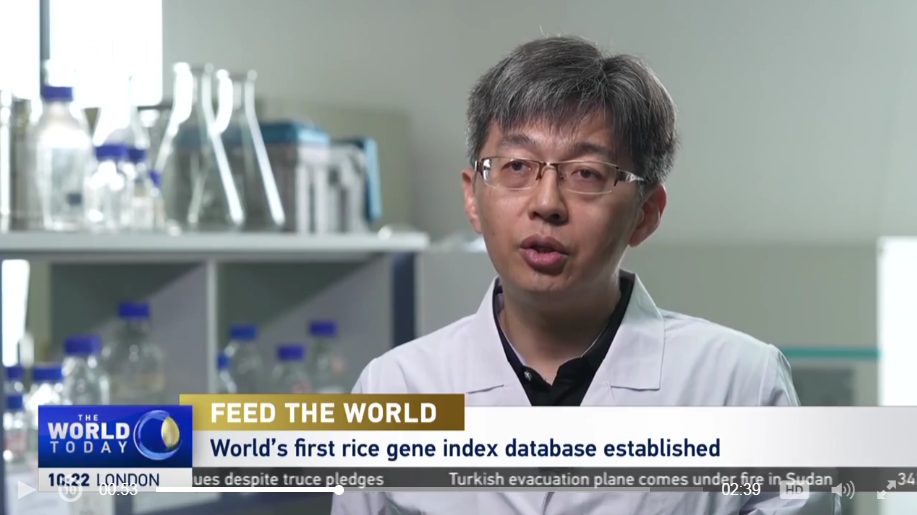Asian rice is a staple food for more than half the world's population. Chinese researchers and their international counterparts have now established a rice gene index database that can help breeders improve the quality of rice varieties. Xia Ruixue has more.

Zhang Jianwei, a leading researcher at Huazhong Agricultural University in Wuhan, central China's Hubei Province, began studying rice more than 20 years ago.
He made big progress lately. His group and researchers from several international institutes and universities have developed the world's first comprehensive rice pan-genome database based on gene clusters of the same origin.
ZHANG JIANWEI Professor, Huazhong Agricultural University "It's a huge workload. Previous studies have analyzed genetic variation, population structure and diversity among 3,010 diverse Asian cultivated rice genomes. We then successfully subdivided them into 16 subgroups. The database that covers almost all the information on Asian rice genomes was then made through a series of sequencing and analysis."
The database provides information for every rice gene, including its generic name, sequence, function and expression.
It can also provide users with diverse modules and tools to facilitate the search, analysis and visualization of different germplasm genes and gene homology relationships.
And it's completely free for anyone to visit online.
ZHANG JIANWEI Professor, Huazhong Agricultural University "What we do is a very basic research. If we collect as many rice genes as possible, it can help scientists to make future rice with higher yields, more nutritious, resilient to multiple abiotic and biotic stresses, and having less of an environmental footprint."
There are approximately 780,000 rice germplasm and wild relatives in the world. The genomic variation of these resources contains important information for variety improvement.
Zhang says he will continue to collect rice genes and put more information into the database in his future research.
CGTN.
